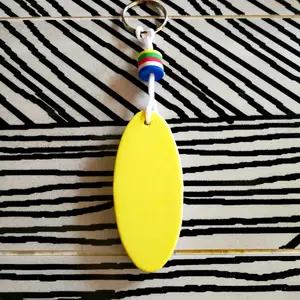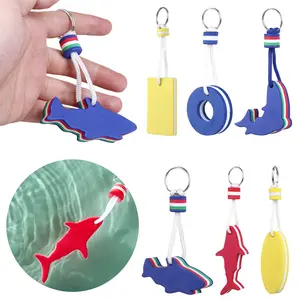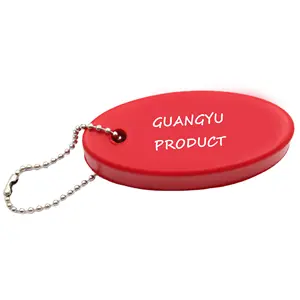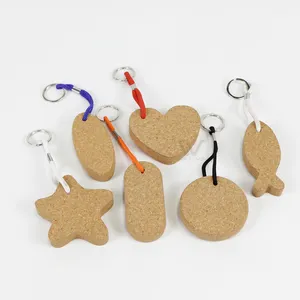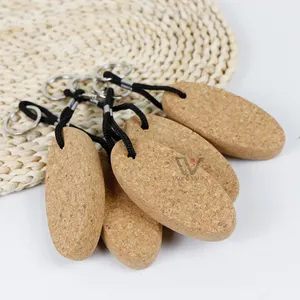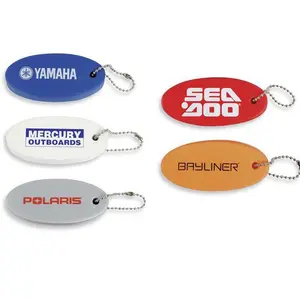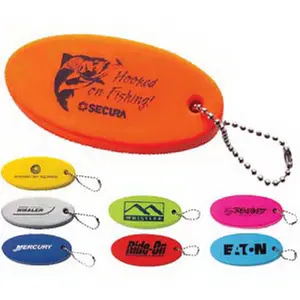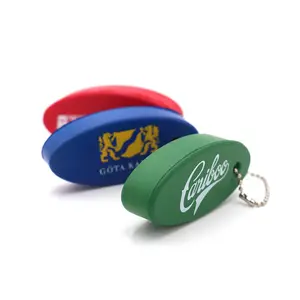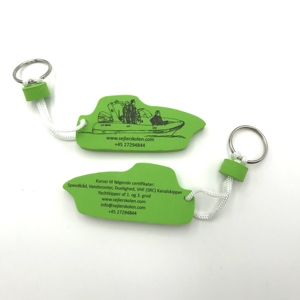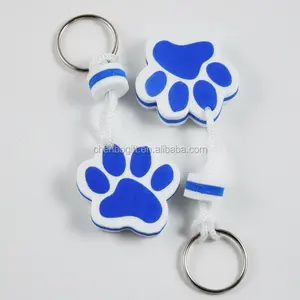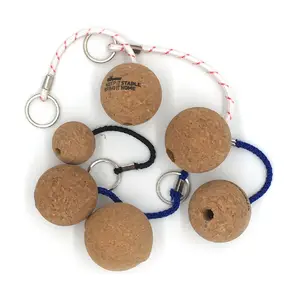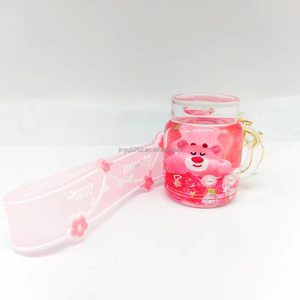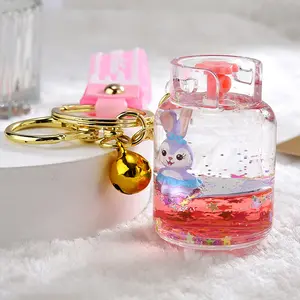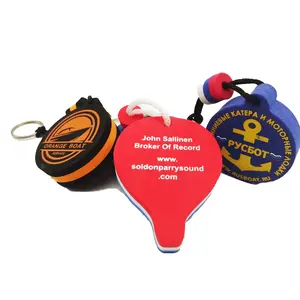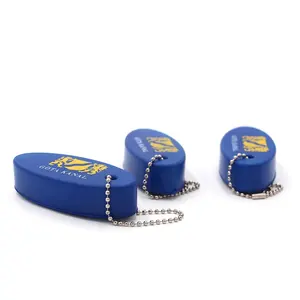Floating Key Chain Producer





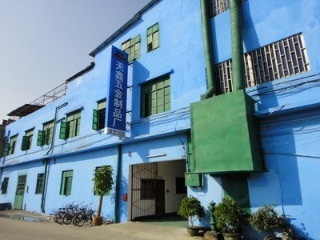





 1/6
1/6










 1/14
1/14
























 1/21
1/21




 1/24
1/24








About floating key chain producer
Where to Find Floating Key Chain Producers?
China remains the global epicenter for floating key chain manufacturing, with production hubs concentrated in Guangdong and Zhejiang provinces. These regions host vertically integrated supply chains that streamline raw material sourcing, molding, liquid encapsulation, and packaging processes. Shenzhen and Zhongshan in Guangdong are particularly notable for their specialization in novelty plastic goods, leveraging localized access to PVC, EVA foam, acrylic oils, and silicone sealants—core materials used in floating key chains.
Suppliers in these clusters operate dedicated production lines for buoyant accessories, achieving economies of scale through automated filling and sealing systems. This infrastructure supports rapid turnaround on both standard and custom designs, with typical monthly output ranging from 500,000 to over 2 million units per facility. The proximity of injection molding units, dyeing workshops, and logistics providers within a 30–50 km radius reduces lead times by up to 40% compared to offshore alternatives, while maintaining tight control over product consistency.
How to Choose Floating Key Chain Suppliers?
Selecting reliable producers requires systematic evaluation across three critical dimensions:
Production Capabilities
Confirm ownership of in-house tooling and molding equipment to ensure design flexibility and IP protection. Leading suppliers utilize multi-cavity molds capable of producing complex shapes (e.g., boats, animals, anime figures) with precision tolerances. Verify capacity via factory area metrics—facilities exceeding 3,000m² typically support full production cycles from raw compound mixing to final packaging. Look for evidence of liquid encapsulation expertise, including vacuum degassing and UV curing stations to prevent bubble formation.
Quality Assurance Protocols
While formal ISO certification is less common among micro-sized novelty exporters, performance indicators such as on-time delivery rates (>98%) and reorder rates (>20%) serve as practical proxies for reliability. Prioritize suppliers with documented QC checkpoints at pre-production, inline, and final inspection stages. Water immersion testing should be standard to validate buoyancy and seal integrity across batches. Response time under 3 hours indicates operational responsiveness crucial for iterative customization.
Customization & Transaction Security
Evaluate digital proofing capabilities: top-tier producers offer 2D/3D mockups within 24 hours and maintain libraries of stock molds to reduce setup costs. For branded items, confirm Pantone color matching, logo embossing, and multi-layer encapsulation options. Use secure transaction mechanisms such as escrow services when placing initial orders. Request physical samples before scaling—particularly to assess fluid clarity, capsule thickness, and long-term leakage resistance.
What Are the Best Floating Key Chain Producers?
| Company Name | Main Materials | MOQ Range | Price Range (USD) | On-Time Delivery | Avg. Response | Reorder Rate | Online Revenue | Customization Options |
|---|---|---|---|---|---|---|---|---|
| Shenzhen Xingtong Shimao E-Commerce Co., Ltd. | Acrylic oil, plastic | 10 pcs | $0.95–$1.25 | 98% | ≤3h | 20% | US $100,000+ | Limited |
| Zhongshan Tianxin Hardware Products Co., Ltd. | EVA, PU, cork, glass | 100–500 pcs | $0.40–$1.30 | 100% | ≤1h | 23% | US $180,000+ | Moderate |
| Shenzhen Kemeng Technology Co., Ltd. | PVC, polystyrene, neoprene | 10–1,000 pcs | $0.34–$0.66 | 98% | ≤1h | <15% | US $280,000+ | High |
| Yiwu Fenjin Import & Export Co., Ltd. | Soft vinyl, inflatable PVC | 500–1,000 pcs | $0.16–$0.80 | 100% | ≤8h | 15% | US $50,000+ | High |
| Zhongshan Guangyu Craft Products Co., Ltd. | PU, EVA, plastic | 100 pcs | $0.30–$1.10 | 98% | ≤3h | 36% | US $60,000+ | High |
Performance Analysis
Shenzhen Kemeng Technology leads in volume scalability and customization depth, supported by robust online revenue and sub-hour response times, though its lower reorder rate suggests room for improvement in post-sale engagement. Zhongshan Tianxin stands out for punctuality (100% on-time delivery) and fast communication, ideal for time-sensitive campaigns. Yiwu Fenjin offers the lowest price points starting at $0.16/unit but requires higher MOQs, making it optimal for bulk promotional runs. Zhongshan Guangyu demonstrates strong customer retention (36% reorder rate), indicating consistent quality and service satisfaction despite mid-tier pricing. Buyers seeking low minimums can engage Shenzhen Xingtong, which accepts orders as small as 10 pieces with moderate customization.
FAQs
What materials are commonly used in floating key chains?
The primary materials include sealed acrylic or polystyrene capsules filled with colored oil or glitter suspension, EVA foam for lightweight buoyancy, soft vinyl for flexible designs, and PU-coated substrates for water resistance. Cork and neoprene variants are also produced for eco-themed or marine applications.
What is the typical MOQ for custom floating key chains?
Standard MOQs range from 100 to 1,000 units depending on complexity and material. Simple EVA or PVC models may start at 100 pcs, while multi-component liquid-filled units often require 1,000+ units to justify mold preparation and batch processing.
How long does production and shipping take?
Lead time averages 15–25 days for custom orders after sample approval. Standard items ship in 7–10 days. Air freight delivers globally in 5–8 days; sea freight takes 25–35 days but reduces transportation costs by 60–70% for container loads.
Can suppliers provide leak-proof guarantees?
Yes, reputable manufacturers conduct pressure and immersion testing (typically 24–72 hours) to validate seal durability. Some offer replacement clauses for defective batches. Insist on test reports or video documentation during QC audits.
Are eco-friendly or RoHS-compliant options available?
Several suppliers use non-toxic, phthalate-free liquids and recyclable plastics upon request. While explicit RoHS or REACH certification is rare among smaller exporters, material compliance can be verified via third-party lab testing—recommended for EU and North American markets.














